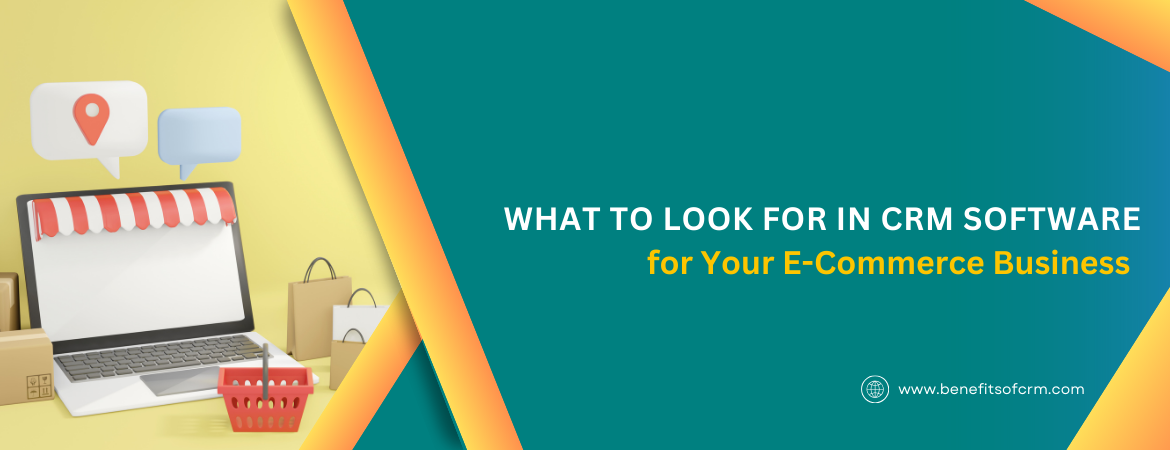Running an e-commerce business is about more than just listing products online. Success hinges on building strong customer relationships, and that’s where Customer Relationship Management (CRM) software becomes invaluable. With CRM software, you can manage customer interactions, automate marketing tasks, and enhance sales. However, with so many options available, how do you find the right one for your e-commerce business?
Table of Contents
Why CRM Software is Essential for E-Commerce
E-commerce businesses face unique challenges. Unlike traditional retail, where face-to-face interactions are possible, e-commerce relies heavily on digital communication. Therefore, managing customer data effectively is vital. CRM software helps centralize all customer interactions, from emails to purchase history, making it easier to connect with your customers.
When you choose the right CRM software for e-commerce, you can:
• Track customer behavior and preferences.
• Personalize marketing campaigns.
• Enhance customer service with quicker responses
• Increase sales through targeted promotions
Nevertheless, not all CRM software is the same. Here’s what you need to consider.
1. Seamless Integration with Your E-Commerce Platform
To start, your CRM software should integrate smoothly with your existing e-commerce platform. Whether you’re using Shopify, WooCommerce, Magento, or another system, ensure that your CRM can easily sync with it. This integration will allow you to automatically import customer data, track orders, and manage inventory without additional manual work.
Example: If you use Shopify, look for a CRM that can pull in customer data like purchase history and abandoned cart details directly into the CRM dashboard. This seamless integration not only saves time but also provides valuable insights into customer behavior, helping you craft targeted marketing strategies.
2. Powerful Automation Tools
Automation is a game-changer for e-commerce businesses. Seek out CRM software that offers robust automation features. By automating tasks like sending personalized emails based on customer behavior or following up with potential buyers, you can save time and boost efficiency.
Examples of What to Automate:
• Welcome Emails: Welcome Emails: Automatically greet customers after their first purchase
• Abandoned Cart Reminders: Nudge customers who left items in their cart without completing the purchase.
• Re-engagement Campaigns: Reach out to inactive customers with special offers to bring them back.
3. Advanced Analytics and Reporting
Data is the lifeblood of any e-commerce business. Your CRM software should include advanced analytics and reporting tools to help you understand customer behavior, monitor sales trends, and assess the effectiveness of your marketing campaigns.
Look for reports that cover:
• Customer lifetime value (CLV)
• Customer segmentation
• Sales pipeline performance
• Conversion rates
These insights are critical for making informed decisions that drive growth.
4. Personalization Capabilities
Personalization is no longer optional; it’s essential. E-commerce customers expect experiences tailored to their needs. Your CRM should enable you to segment your audience based on factors like purchase history, browsing behavior, and demographic information. With this data, you can design personalized marketing campaigns that truly resonate with your customers.
Example: Amazon excels in personalization by recommending products based on past purchases and browsing history. Your CRM should empower you to offer similarly tailored experiences.
5. Multi-Channel Support
Your customers interact across multiple platforms. Therefore, your CRM software must support various channels, including email, social media, live chat, and SMS. By engaging with customers wherever they are, you can provide a consistent experience across all touchpoints.
6. Scalability
As your e-commerce business grows, so will your customer base. Choose CRM software that scales with your business. Whether you’re a small startup or an established online retailer, your CRM should be capable of handling an increasing number of customers, orders, and data without compromising performance.
7. User-Friendly Interface
Even the most powerful software is useless if it’s too difficult to use. The best CRM software for e-commerce is user-friendly and intuitive. Opt for a platform with a clean interface and strong customer support to ensure that your team can quickly adapt and maximize its benefits.
8. Mobile Accessibility
In today’s fast-paced world, accessing your CRM on the go is essential. Choose CRM software that offers a mobile app or is mobile-friendly, enabling you to manage customer relationships and monitor sales data anytime, anywhere.
9. Data Security and Compliance
Data security is a top concern, especially for e-commerce businesses that handle sensitive customer information. Ensure that the CRM software you select complies with data protection regulations like GDPR and offers robust security features such as encryption, multi-factor authentication, and regular backups.
10. Pricing and Value
Lastly, consider the cost. Although it might be tempting to opt for the cheapest option, remember that you often get what you pay for. Evaluate the features each CRM offers and determine which one provides the best value for your business. Some CRMs offer tiered pricing, allowing you to start small and upgrade as your business grows.
Conclusion
Choosing the right CRM software for your e-commerce business is vital for building strong customer relationships, streamlining operations, and driving sales. By focusing on seamless integration, powerful automation, advanced analytics, and other key features, you can find a CRM that meets your current needs and supports your future growth.
Ultimately, the best CRM is one that aligns with your business requirements and helps you achieve your goals. Take the time to research, compare options, and take advantage of free trials to find the perfect fit.
